White Material
Despite being a fan of schlock and trash cinema, I love it when a director doesn't treat the audience like a bunch of idiots and gives them something to think about whilst they are watching the film. The most recent case of this was Christopher Nolan's Inception which proved that blockbusters don't have to be aimed at the lowest common denominator in order to be successful.
Based loosely on the book The Grass Is Singing by Doris Lessing, who won the Nobel Prize for Literature in 2007, but freely adapted by writer-director Claire Denis, the film really expect you to work straight away as you are thrown in the middle of a conflict in an unnamed African country (not South Africa as in the novel) and you have to figure out who is who and exactly what is going on.
The start of White Material shows some soldiers entering a dark room and finding a man dead in bed and they remark that he is definitely 'The Boxer'. You then have a rather dramatic cut to find a woman in the middle of nowhere who finds a sandal on the road and, after looking in the woods, she finds a T-shirt and then a radio with a government broadcast asking rebels to come out of hiding and hand themselves over. The bulk of the film is told in flashback with the woman, who we later find out is Maria Vials who owns a coffee plantation, sitting on a bus with the narrative catching up to her current location and explaining how she ended up on the bus and what is going on in the country.
It is established quite early on that Marie is not a native of the country, unlike her ex-husband, his father and grandfather, so is perhaps a little naïve to the seriousness of the warnings that are being put out by the rebels and even the French army who have been told to leave by the government and are trying to take every French citizen with them. This rebel uprising (the title comes from the rebels' description of white people and their goods) involves child soldiers, brutal murder and corruption at every level but this doesn't seem to bother Marie who is only concerned with getting her coffee crop harvested, soaked, sorted, dried, packaged and sold. This task is made all the more difficult when all workers, including the two supervisors, up sticks and leave hoping to make it to a neighbouring country (or at least somewhere safe in one piece).
As Marie has seen her husband's motorcycle and the house belonging to Cherif, the Mayor of the next town, who has his own private militia and plenty of gasoline and money, she believes that some deal has been struck and that Cherif will provide the plantation and her son with protection. Whilst people around her flee, Marie stays resolute in the face of danger and does her best to help out friends, transporting people from one place to another and sets about recruiting some new labour to ensure the coffee will be harvested in time.
Writer-director Claire Denis tells how Isabelle Huppert approached her with the project, asking if she was a fan of Doris Lessing's work and, when Denis replied in the affirmative, enquired if she had given any thought to adapting The Grass Is Singing into a feature film. She hadn't, but said that she would only do it if she can make some sizeable changes such as relocating the action, changing the main character's vocation and the title. This was a mutually agreeable solution and Huppert was cast in the lead role. One of the more surprising casting choices is Christopher Lambert (credited under his birth name Christophe) as Marie's ex-husband, André but, as a native French speaker who was educated in Switzerland and France, the countries in which he now spends most of his free time, it turns out to be a rather good decision as André doesn't have a huge amount of screen time and is a very different character from any that Lambert has played in an English-language film.
It is difficult to watch this and not think of things like the Rwandan genocide or the trouble in Liberia or Sierra Leone and, as there are numerous French-speaking countries in Africa, you can easily imagine some of this being taken from the headlines or even being something of a portent. There are several scenes with incredible tension as you believe that someone on screen is going to be killed but you aren't sure and almost don't want to look. As such, it is an immensely powerful film with a stunning performance by Isabelle Huppert at its centre who is completely magnetic and, despite her almost blindness to the magnitude of the situation, you spend the entire running time rooting for her and her situation. It is a thoroughly remarkable film that had me engrossed from first minute to last and marks Claire Denis as one of the finest directors currently working.
The Disc
Extra Features
Sadly, there is only one main extra feature: an interview with Claire Denis and Christopher Lambert (10:10, HD) but they both talk extremely well with the running time split pretty much 50-50 and their English is so good that the interviews are conducted in English which is quite strange considering they were for a French production.
The only other extra feature is the theatrical trailer.
The Picture
Presented in 1080p, the picture quality is extremely good and, at times, quite breathtaking. I'm not quite sure exactly where it was filmed but the locations look authentic enough and, just as in The Last King of Scotland, the lush greens of the forests, earthy reds and yellows and the bright blue sky stand out quite beautifully.
The cinematography is superb and the editing is very clever as you start at the very end before moving to about three quarters of the way through the narrative and then, in the various flashbacks, catch up to Marie on the bus and see what happens from there. The art department have done a splendid job with the costumes, props and decorations with the plantation looking just like an African plantation which is fairly run down though completely functional with its own water pump and generator.
The Sound
You have the choice of DTS-HD Master Audio 5.1 surround or 2.0 stereo and, although this isn't a film with the most expansive of soundtracks with no real battle sequences, cars flying by or anything else that would have your speaker system on its toes, the extra channels do work and are effective when it comes to the more suspenseful situations with some LFEs rumbling away and a heightened sense of reality caused by the increased volume for the atmospherics and ambient sounds. There are no problems with the stereo option but it is found a little lacking in the more threatening and dangerous scenes.
The score, by Stuart Staples, is powerful and extremely evocative so that the more tense parts are made even more suspenseful when the volume rises and there are other occasions when the more subtle use of music helps to underscore emotion and complement the narrative.
As the film is entirely in French, there are optional English subtitles which are well written and translated from the French, clear and easy to read with no spelling or grammatical errors.
Final Thoughts
Despite the paucity of special features, this is a terrific film with a stunning central performance by Isabelle Huppert that really deserves as wide an audience as possible. I was unaware of Claire Denis as a director but will make an effort to check out her other major films including 35 Shots of Rum and Beau travail. If you like films such as The Last King of Scotland, Hotel Rwanda or The Killing Fields then this will suit you down to the ground and I'm amazed that it didn't really win any major awards, with Huppert only gaining a nomination for a Golden Lion at the 2009 Venice Film Festival.
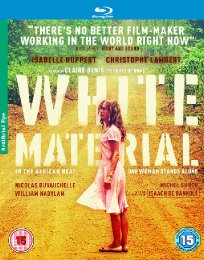










































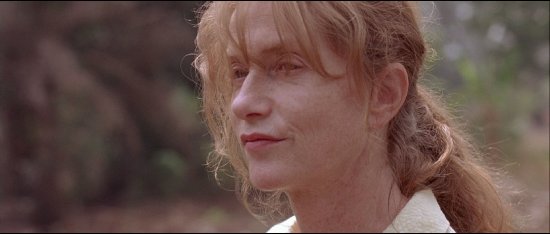
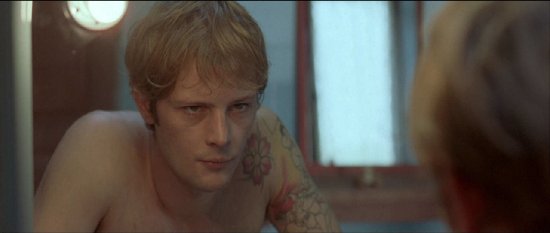
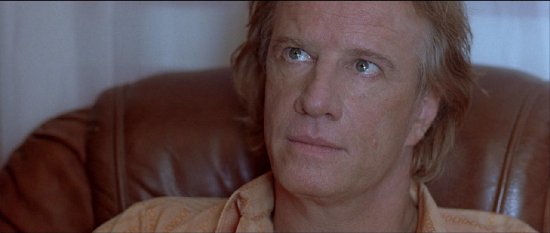
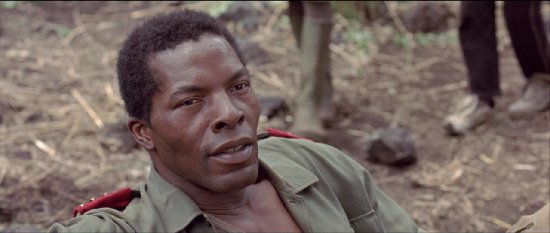
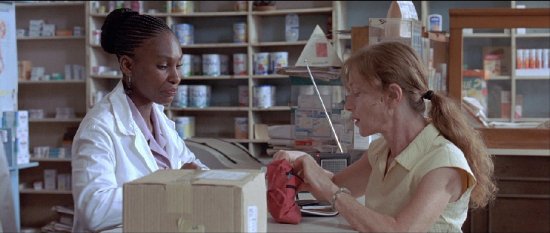
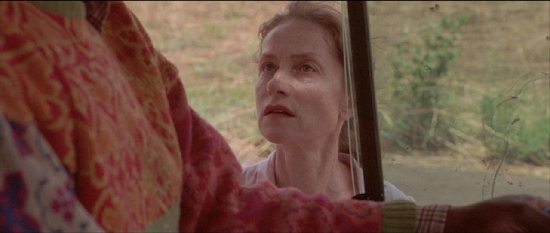
Your Opinions and Comments
Be the first to post a comment!